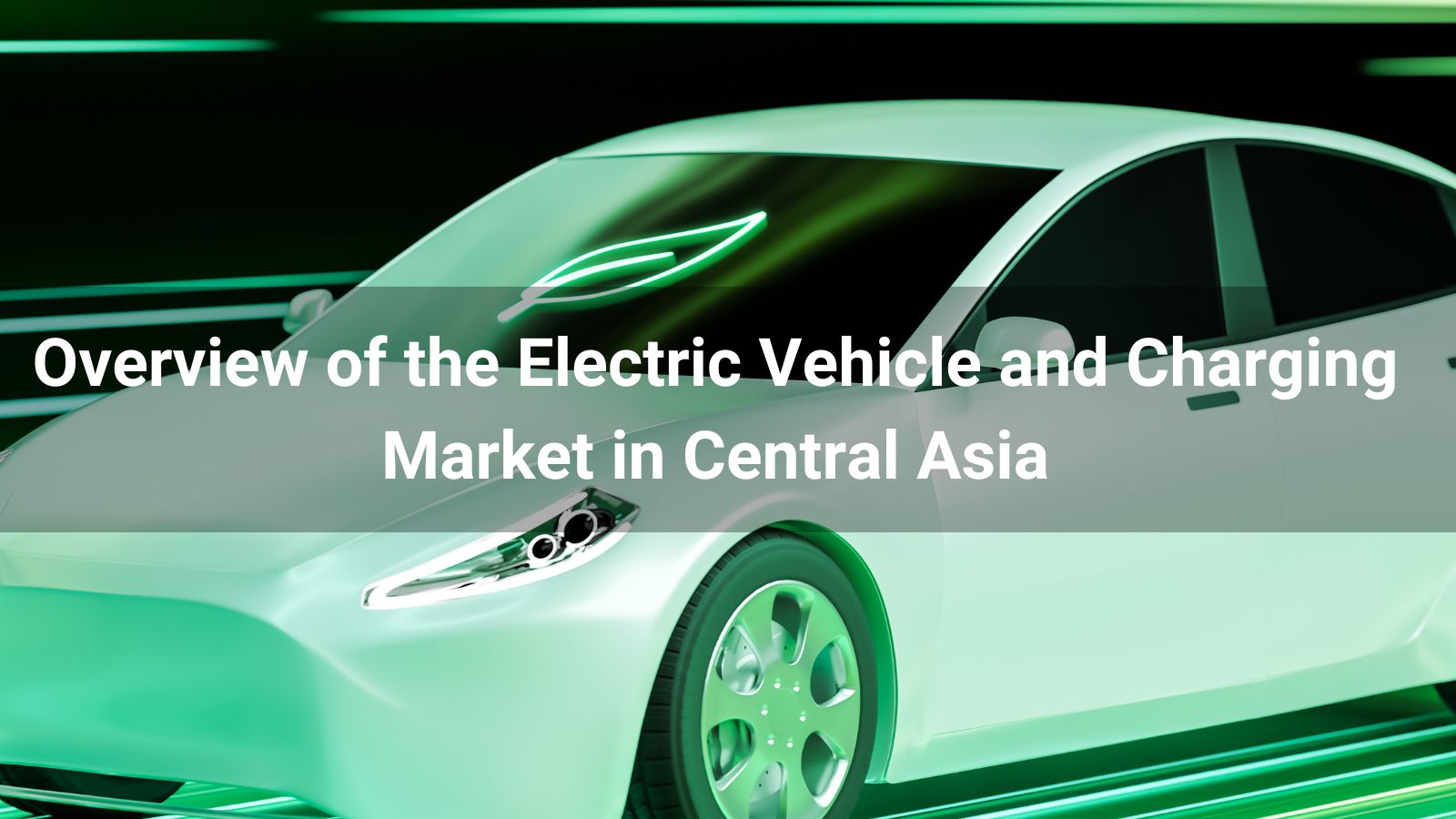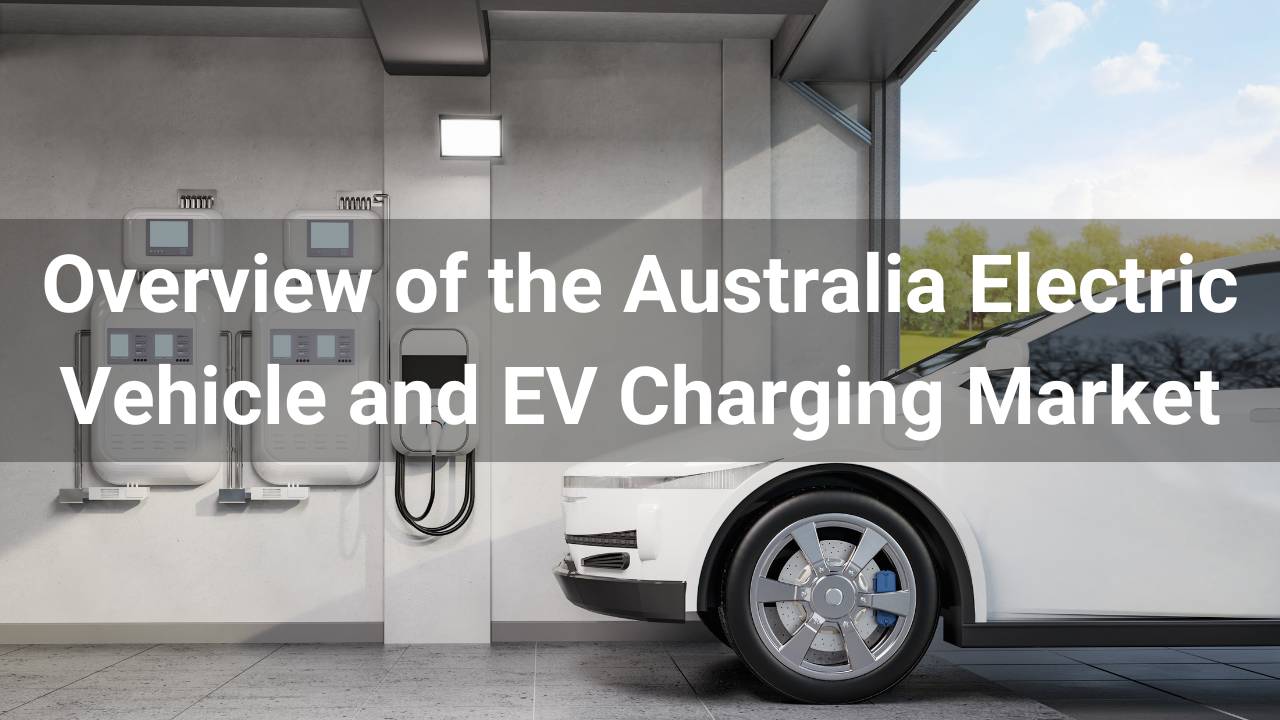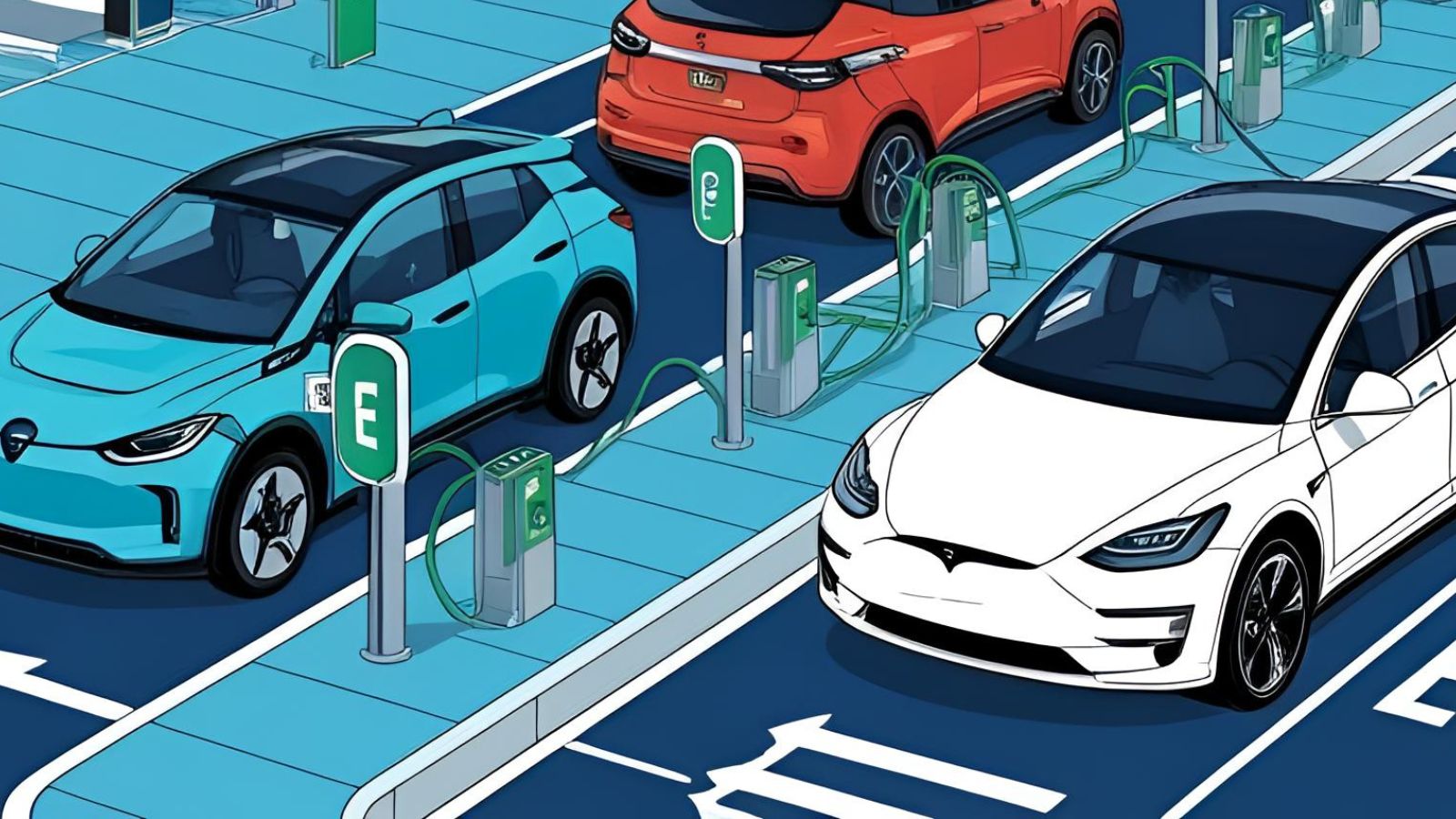Comprehensive Guide to EV Charging Station in Central Asia

Central Asia, comprising Kazakhstan, Uzbekistan, Kyrgyzstan, Tajikistan, and Turkmenistan, is witnessing a surge in electric vehicle (EV) adoption, with EV charging stations playing a pivotal role in supporting this transition to sustainable transportation. Driven by government incentives, declining EV costs, and growing environmental awareness, Uzbekistan and Kazakhstan are leading the region in developing EV charging stations and supportive policies. This article provides a detailed guide to EV charging stations, policies, and market trends in Uzbekistan and Kazakhstan, while also exploring charging costs across Central Asia.
What Is the EV Policy in Uzbekistan?
Uzbekistan has emerged as Central Asia’s leader in EV adoption, with policies designed to expand EV charging stations and promote sustainable transportation. The government has implemented incentives to accelerate the deployment of EV charging stations and boost EV ownership, as outlined below:
- Tax and Duty Exemptions: Since 2019, imported EVs and hybrids are exempt from customs duties, excise taxes, and vehicle taxes, reducing costs. This has lowered the average price of imported EVs to $9,330 in 2025, making them more accessible and increasing demand for EV charging stations.
- Domestic Production Support: Presidential decrees from December 2022, such as "On Measures of State Support for the Organisation of Electric Vehicle Production" and "On Measures to Expand the Infrastructure for EV Charging Stations," promote localized EV manufacturing. Companies like BYD and Chery have established assembly plants, with BYD’s Jizzakh factory targeting 50,000 EVs annually, scaling to 500,000, driving the need for widespread EV charging stations.
- Mandates for EV Charging Stations: A 2022 decree mandates 2,400 EV charging stations over two years, requiring new commercial centers, gas stations, hotels, and highways built after January 1, 2025, to include EV charging stations. By February 2025, public parking spaces must allocate at least 5% of spots or one spot per location for EV charging stations. The government aims for 32,400 EV charging stations by the end of 2025.
- Long-Term Vision: Uzbekistan plans to phase out import tariffs on new energy EVs by 2030 and has agreements, such as with China’s Henan Suda, to build 50,000 EV charging stations by 2033. The country’s carbon-neutral goal by 2050 underscores its commitment to expanding EV charging stations.
These policies have fostered a robust environment for EV growth, with events like AUTO PARTS EXPO 2025 in Tashkent promoting EV charging stations and related infrastructure. However, concerns about potential monopolistic practices by state-backed manufacturers like BYD Uzbekistan Factory highlight the need for fair competition in the EV charging station market.
How Many EV Cars Are in Uzbekistan?
Uzbekistan’s EV market is booming, fueled by government incentives and increased availability of EV charging stations. According to the Uzbek State Customs Committee and Statistics Agency:
- In 2025, Uzbekistan imported 24,095 EVs and 17,480 hybrids, accounting for 55.7% of the total 74,525 passenger cars imported, surpassing internal combustion engine (ICE) vehicles for the first time, increasing the demand for EV charging stations.
- From January to August 2025, 12,913 EVs were imported, valued at $166.8 million, primarily from China (22,100 units), with smaller contributions from Kazakhstan (22), Hong Kong (15), Germany (12), and others.
- In 2023, EV sales reached 25,700 units, a 4.3-fold increase from the previous year, representing 5.7% of the new passenger car market, further necessitating the expansion of EV charging stations.
While exact figures for total EVs on the road are unavailable, import data suggests over 40,000 EVs by mid-2025, assuming minimal scrappage and continued growth. Popular models like BYD’s Song Plus, Volkswagen ID.4 and ID.6, and Zeekr 001 rely on accessible EV charging stations, particularly those compatible with Chinese standards.
What Is the EV Policy in Kazakhstan?
Kazakhstan, Central Asia’s largest economy, is advancing its EV sector, with policies focused on expanding EV charging stations and encouraging adoption, though progress lags behind Uzbekistan. Key measures include:
- Tax and Fee Exemptions: EVs are exempt from transport tax until December 31, 2025, per the Eurasian Economic Commission’s 2017 decision. Since July 4, 2021, EV owners are also exempt from recycling fees, reducing costs and supporting demand for EV charging stations.
- Loan Subsidies: The state partially reimburses interest rates on loans for EVs manufactured in Uzbekistan and sold domestically, fostering regional trade and the need for EV charging stations.
- Development of EV Charging Stations: New construction norms adopted on April 22, 2025, mandate EV charging stations in urban and rural settlements, including at gas stations, parking lots, and roadside facilities. Parking lots must reserve spaces for EV charging stations. However, a ban on installing EV charging stations in residential buildings poses challenges for urban EV owners.
- Future Roadmap: A 2029 roadmap aims to expand EV charging stations and upgrade power grids, addressing "range anxiety" and supporting long-distance travel.
Kazakhstan’s EV policies are less comprehensive than Uzbekistan’s, with fewer incentives for local production and slower EV charging station expansion. Partnerships with Chinese manufacturers like BYD and Chery are under exploration, but no major production facilities have been confirmed as of mid-2025.
How Many EV Cars Are in Kazakhstan?
Kazakhstan’s EV market is smaller than Uzbekistan’s but growing, with EV charging stations playing a critical role in adoption. Key data points include:
- In 2025, Kazakhstan imported approximately 6,875 EVs from China, a 36-fold increase in Chinese EV sales, boosting the need for EV charging stations.
- In 2019, the International Energy Agency reported only about 100 EVs in Kazakhstan, indicating significant growth.
- While precise 2025 figures are unavailable, 2025 import data and policy support suggest around 8,000–10,000 EVs on the road by mid-2025, relying on expanded EV charging stations.
The limited EV numbers reflect early-stage adoption, constrained by insufficient EV charging stations and high upfront costs for non-subsidized models. Chinese brands like BYD, Chery, and JAC Motors dominate, with EV charging stations supporting their growing popularity among taxi drivers due to lower operating costs.
How Much Do EV Charging Stations Cost to Use in Central Asia?
The cost of using EV charging stations in Central Asia varies by country, provider, and subsidy level. Limited data is available, but insights from regional trends provide clarity:
-
Uzbekistan:
- Free EV Charging Stations: Makro’s EV charging stations, launched in 2021, offer free charging at supermarkets, achieving an 80% charge in 40 minutes. This incentivizes EV use but may not be sustainable long-term.
- Commercial Rates at EV Charging Stations: A 2022 decree allows operators to set tariffs for EV charging stations, suggesting a shift to paid charging. Costs may range from $0.10–$0.30 per kWh for AC chargers (7–22 kW) and $0.20–$0.50 per kWh for DC fast chargers (50+ kW). For a 60 kWh battery, a full charge at EV charging stations could cost $6–$18, compared to $30–$50 for gasoline equivalent distance.
- User Savings: EV owners report monthly charging costs at EV charging stations dropping to $10, compared to $300 for gasoline, highlighting economic benefits.
-
Kazakhstan:
- Estimated Costs at EV Charging Stations: Specific data is unavailable, but urban EV charging stations in Almaty and Astana likely charge $0.15–$0.35 per kWh for AC and $0.25–$0.60 per kWh for DC fast chargers. Home charging, where permitted, could leverage residential rates (~$0.05–$0.10 per kWh), though restricted by the residential charger ban.
- Comparative Savings: A 2018 report noted EVs cost less than $2 per week to charge at EV charging stations for 50 km daily, compared to $50 for gasoline, underscoring cost advantages despite limited EV charging stations.
-
Regional Context:
- In Kyrgyzstan, Tajikistan, and Turkmenistan, EV charging station costs are poorly documented due to minimal infrastructure. Where available, costs likely align with Uzbekistan’s commercial rates, given similar electricity pricing and reliance on Chinese EV technology.
- Subsidized electricity, often from hydropower (e.g., 90% in Kyrgyzstan), keeps EV charging station costs low compared to global averages ($0.30–$0.70 per kWh in Europe).
The affordability of EV charging stations drives adoption, especially for taxi drivers and small businesses, but limited standardization and rural EV charging stations hinder scalability. Future renewable-powered EV charging stations could further reduce costs and enhance sustainability.
What Are the Challenges and Opportunities for EV Charging Stations?
Challenges
- Insufficient EV Charging Stations: Kazakhstan’s 269 EV charging stations and Uzbekistan’s ~100 (as of 2022) are inadequate for their large geographies, with rural and highway EV charging stations particularly scarce.
- Range Anxiety: Limited EV charging stations outside urban centers deter long-distance travel, especially in Kazakhstan’s vast landscape.
- Policy Consistency: Uzbekistan’s risk of monopolistic practices in EV charging station deployment and Kazakhstan’s residential charger ban create regulatory hurdles.
- Data Transparency: Limited data on EV charging station locations and costs in Kazakhstan and other countries complicates planning for consumers and investors.
Opportunities
- Regional Leadership: Uzbekistan’s target of 32,400 EV charging stations by 2025 and Kazakhstan’s 2029 roadmap position them as EV hubs, attracting investment in EV charging stations.
- Economic Benefits: EVs and EV charging stations reduce reliance on imported oil, saving Kazakhstan ~$10 million annually for 10,000 EVs and creating jobs (e.g., BYD’s 1,200 jobs in Uzbekistan).
- Sustainable Energy: Leveraging hydropower and solar for EV charging stations, as piloted in Uzbekistan, aligns with carbon-neutral goals.
- Export Potential: Uzbekistan’s EV production and Kyrgyzstan’s retrofitting could support regional markets, increasing demand for EV charging stations.
What Is the Practical Guide for EV Owners Using EV Charging Stations?
For EV owners in Uzbekistan and Kazakhstan, navigating EV charging stations requires strategic planning:
-
Locating EV Charging Stations:
- In Uzbekistan, use PLUGSHARE or local apps to find Makro, Pulseev, or public EV charging stations, primarily in Tashkent and regional cities.
- In Kazakhstan, EV charging stations are concentrated in Almaty, Astana, and Shymkent. Check local providers or parking apps for updates.
- Carry a GB/T-compatible cable in Uzbekistan due to Chinese EV dominance at EV charging stations.
-
Charging at Home vs. EV Charging Stations:
- In Uzbekistan, home charging is feasible with a 240V connection, costing ~$10 monthly, supplementing public EV charging stations.
- In Kazakhstan, residential charging restrictions necessitate reliance on public EV charging stations until regulations change.
-
Cost Management at EV Charging Stations:
- Utilize free EV charging stations at Makro in Uzbekistan or subsidized urban chargers in Kazakhstan. Budget $0.10–$0.50 per kWh for commercial EV charging stations.
- Monitor tariffs, as operator-set rates at Uzbekistan’s EV charging stations may rise with infrastructure growth.
-
Vehicle Selection for EV Charging Station Compatibility:
- Choose Chinese brands like BYD or Chery, which dominate and are compatible with local EV charging stations. Check for tax-exempt models in Uzbekistan or loan-subsidized EVs in Kazakhstan.
- Consider range limitations (e.g., BYD e2 for city use) for Uzbekistan’s shorter-distance EV charging station needs.
-
Policy Awareness for EV Charging Stations:
- Stay updated on tax exemptions (until 2030 in Uzbekistan, 2025 in Kazakhstan) and EV charging station mandates to plan purchases and travel.
- In Uzbekistan, monitor BYD import regulations to avoid cost increases at EV charging stations.
Conclusion
Uzbekistan and Kazakhstan are driving Central Asia’s EV revolution, with Uzbekistan leading in EV adoption (40,000 EVs by mid-2025) and EV charging stations (targeting 32,400 by 2025), while Kazakhstan (8,000–10,000 EVs) focuses on incremental growth in EV charging stations. Government incentives, such as tax exemptions and production support, have fueled Chinese EV imports, making EVs affordable and reducing operating costs ($10/month vs. $300 for gasoline) at EV charging stations. Challenges like limited rural EV charging stations, regulatory inconsistencies, and data gaps persist. By leveraging renewable energy, regional production, and ambitious EV charging station plans, Central Asia is poised to become a green transportation hub, offering economic and environmental benefits.
For EV owners, navigating EV charging stations requires planning, from using free chargers to selecting compatible vehicles. As Uzbekistan and Kazakhstan expand their EV charging station networks, Central Asia’s EV landscape is set for significant growth, shaping a cleaner, more connected future.
Read more:

You Might Also Like...
-

Overview of the Electric Vehicle and Charging Market in Central Asia
2026 Feb,05 -

Overview of the Australia Electric Vehicle and EV Charging Market
Australia's electric vehicle (EV) market is rapidly expanding, with Tesla leading the high-end segment and Chinese brands like BYD gaining traction among mid-to-low-end consumers.2026 Feb,05 -

List of 60 EV Charging Companies in 2026
EV charging companies are at the forefront of this revolution, driving the transition to sustainable transportation through innovative technologies and expansive networks. Below is a list of 60 leading EV charging companies worldwide in 2026, showcasing the key players shaping the future of mobility.2026 Jan,26












